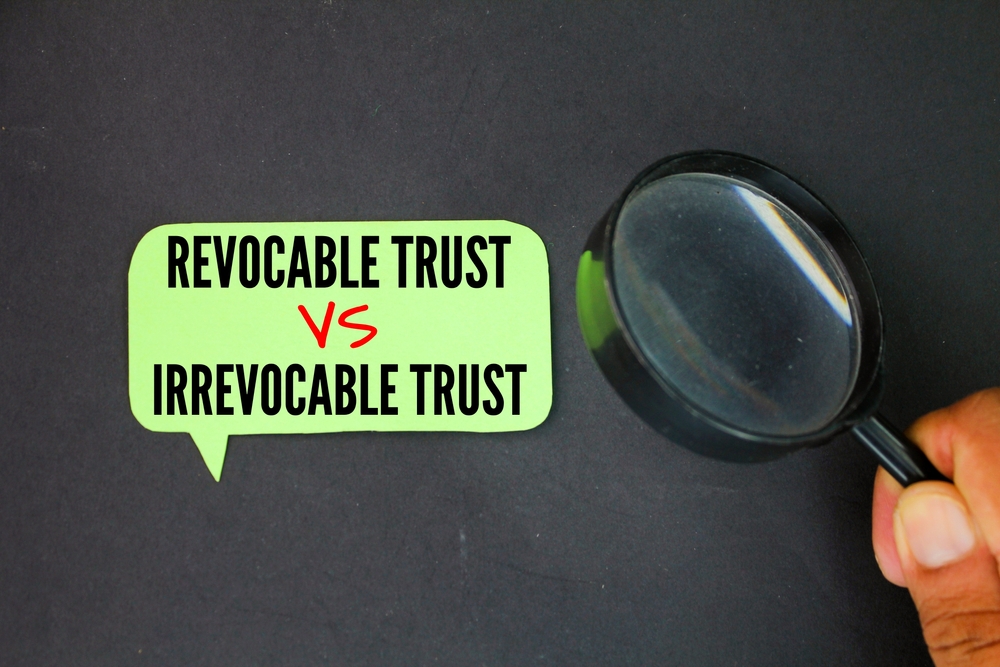When it comes to estate planning, many people believe that drafting a simple will is enough to ensure their assets are passed on to their loved ones. However, relying solely on a will, especially one that requires probate, can lead to complications, delays, and additional expenses. That’s where a revocable living trust comes in. This powerful estate planning tool offers several advantages over a testamentary trust or a will alone. Here's why you should consider a revocable living trust as part of your comprehensive estate plan.
What Is a Revocable Living Trust?
A revocable living trust is a legal document that allows you to transfer ownership of your assets into a trust while you are still alive. Unlike a testamentary trust, which is created through a will and only becomes effective after you pass away, a revocable living trust is established and funded during your lifetime. You, as the trust maker, retain control over the trust and can amend or revoke it at any time.
The primary benefit of a revocable living trust is that it helps you avoid probate, the court-supervised process of distributing your assets after your death. With a trust in place, your assets can be transferred directly to your beneficiaries without the need for probate, making the process smoother and faster for your loved ones.
Avoiding Probate: Why It Matters
Probate can be a lengthy and expensive process, especially in Arizona. It involves filing legal documents, paying court fees, and sometimes even hiring an attorney to navigate the process. In addition, probate is a public proceeding, which means that anyone can access information about your estate, including the value of your assets and who your beneficiaries are.
By creating a revocable living trust, you can avoid probate altogether. Your assets will be distributed privately according to the terms of the trust, without the need for court involvement. This not only saves time and money but also helps protect your family’s privacy.
Common Question: What happens if I don’t have a trust and my estate goes through probate? If your estate goes through probate, the court will oversee the distribution of your assets according to the terms of your will (if you have one) or Arizona’s intestacy laws (if you don’t). This process can take several months, or even years, and can significantly reduce the value of your estate due to legal fees and court costs. A revocable living trust allows your loved ones to avoid this hassle and ensures that your assets are distributed efficiently.
Managing Your Assets During Incapacity
One of the often-overlooked benefits of a revocable living trust is its ability to help manage your assets if you become incapacitated. If you are unable to handle your financial affairs due to illness or injury, your successor trustee can step in and manage the trust assets on your behalf. This ensures that your bills are paid, and your financial obligations are met without the need for a court-appointed conservatorship.
In contrast, if you only have a will, your loved ones may need to rely on a power of attorney to manage your affairs. However, a power of attorney may not be as effective or as widely accepted as a trust. In some cases, a power of attorney may even be challenged, leading to a lengthy court process. A revocable living trust provides a seamless transition in managing your assets if you are no longer able to do so yourself.
Privacy and Control: Keeping Your Affairs Private
Another significant advantage of a revocable living trust is the privacy it provides. Unlike a will, which becomes a public document once it goes through probate, a trust remains private. This means that the details of your estate, including the value of your assets and who will inherit them, are kept confidential. For those who value their privacy, a trust offers a way to ensure that their financial affairs remain private.
Common Question: Do I need to file my trust with the state? No. A revocable living trust is a private document that does not need to be filed with the state or any court. This allows you to maintain control over your estate plan and keep your affairs out of the public eye. Your successor trustee will administer the trust according to your wishes, without the need for state oversight.
Flexibility: Adapting to Life’s Changes
Life is full of changes—births, deaths, marriages, divorces, and other significant events can impact your estate plan. One of the great benefits of a revocable living trust is its flexibility. Because the trust is revocable, you can amend it at any time to reflect changes in your life. For example, if you have a new child or grandchild, you can update your trust to include them as a beneficiary. Similarly, if one of your named trustees passes away, you can appoint a new successor trustee.
This flexibility ensures that your estate plan continues to meet your needs as your life evolves. At KEYTLaw, we encourage our clients to review their estate plans regularly and make updates as needed. We also offer follow-up services to remind you to review your trust periodically and make any necessary changes.
Trust Administration: What Happens After You Pass Away?
After your death, the trust administration process begins. Your successor trustee will take over the management of the trust and carry out the terms of the trust agreement. This may include paying off any outstanding debts and expenses, filing final tax returns, and distributing the remaining assets to your beneficiaries.
In some cases, the trust may call for the creation of sub-trusts, particularly if you have beneficiaries who are minors or who require special care. These sub-trusts allow the trustee to manage the assets on behalf of the beneficiaries until they reach a certain age or until specific conditions are met. For example, the trust might specify that a minor child will receive their inheritance in installments at age 25, 30, and 35, rather than receiving the entire amount at once.
Common Question: How long does the trust administration process take? The length of the trust administration process can vary depending on the complexity of the estate and the specific terms of the trust. However, it is generally much faster than probate. While probate can take several months to years to complete, trust administration is typically handled within a few weeks to a few months.
Taking the First Step: Your Free Consultation
Creating a revocable living trust is a crucial step in protecting your legacy and ensuring that your loved ones are taken care of after you’re gone. At KEYTLaw, we understand that estate planning can be overwhelming, which is why we offer a free initial consultation. During this meeting, we’ll take the time to get to know you, understand your goals, and design a trust that meets your specific needs.
Whether you’re just starting your estate planning journey or need to update an existing plan, we’re here to help. Contact KEYTLaw today to book a free consultation and take the first step toward securing your family’s future.






